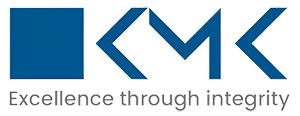Cloud vs. Desktop Accounting in 2025: Which Option Suits Your U.S. Business Better?

Introduction
As financial operations evolve in a post-pandemic, remote-first world, U.S. businesses are reassessing the tools they use to manage their books. For many, the big question remains: Should we stick with desktop accounting software or migrate to the cloud?
With new advancements in accounting technology, the answer isn’t always obvious. While desktop accounting software has long been trusted for its control and offline access, cloud accounting software is quickly becoming the default for companies prioritizing real-time collaboration, scalability, and compliance.
In this blog, we break down the pros and cons of both systems—helping U.S. businesses choose the best solution for 2025 and beyond.
Understanding the Basics: What’s the Difference?
- Desktop accounting software is installed locally on a single computer or internal server. Data is stored on-premise, and access is typically limited to one user or machine unless networked.
- Cloud accounting software is hosted online, allowing users to access financial data from anywhere via the internet. Your data is stored securely in the cloud and updated in real time.
While the core functionalities—like invoicing, payroll, reconciliation, and tax prep—are available in both, how these tasks are executed varies significantly based on the platform.
Cloud Accounting Software: Key Benefits for U.S. Businesses
- Real-Time Collaboration and Access
One of the biggest drivers for cloud adoption is remote accessibility. Whether you’re a multi-location firm or a startup with part-time contractors, cloud accounting software lets your team log in from anywhere—perfect for modern U.S. businesses operating hybrid or remote models.
Your CPA, bookkeeper, and internal finance lead can work in parallel without waiting on file transfers or version updates.
- Automatic Updates and Backups
Forget manually installing software patches or worrying about data backups. Cloud providers like QuickBooks Online, Xero, and NetSuite roll out security patches and product upgrades seamlessly.
This supports better financial data management and reduces your IT maintenance workload.
- Lower Upfront Costs and Scalable Pricing
Most cloud accounting software options run on subscription models (monthly or annual), making them more budget-friendly than purchasing expensive perpetual licenses. As your team or transaction volume grows, you can scale up without buying entirely new infrastructure.
- Data Security and Compliance
Reputable cloud platforms invest heavily in encryption, disaster recovery, and SOC 2 compliance—requirements increasingly demanded by U.S. businesses in regulated industries like finance, healthcare, and e-commerce.
While cloud scepticism still exists, modern accounting technology is often more secure than legacy desktop setups.
When Desktop Accounting Still Makes Sense
That said, desktop accounting software still has its place—especially for businesses with highly specific needs.
- No Dependency on Internet Access
If you’re in a location with unstable internet or prefer offline access, desktop software gives you complete autonomy. This can be important for field operations, manufacturing units, or rural offices.
- One-Time License Fee
Some small businesses still prefer to pay once rather than commit to recurring subscription costs. Desktop versions of QuickBooks or Sage offer this option, with control over updates and upgrades.
- Custom Integrations and Legacy Systems
For firms using older ERP systems or industry-specific tools, integrating with desktop accounting software may be easier—especially if you’re managing local servers or proprietary workflows.
However, these benefits often come at the cost of limited mobility, manual backups, and difficulty scaling.
Security Showdown: Which Is Safer in 2025?
Data security is a top priority for U.S. businesses in 2025, especially in industries managing sensitive client or financial information.
- Cloud accounting software uses encrypted data transmission (often AES-256), multi-factor authentication (MFA), and regular security audits (e.g., SOC 2 Type II compliance).
- Desktop software, while offline, is vulnerable to local hardware failures, ransomware attacks, and manual backup errors.
Ultimately, cloud accounting wins in terms of resilience, compliance, and backup recovery options. However, it’s critical to choose providers with a clear security policy, privacy certifications, and uptime guarantees.
Comparing Leading Platforms
Feature | Cloud (QuickBooks Online, Xero) | Desktop (QuickBooks Desktop, Sage) |
Accessibility | Remote/mobile access | Local access only |
Updates | Automatic | Manual |
Backup | Cloud-based | Local or manual |
Cost Model | Subscription | One-time + support fees |
Collaboration | Real-time multi-user | Requires server/networking |
Compliance | SOC 2, encrypted | Depends on local IT setup |
Read Also: 5 Reasons Cloud Accounting Is Transforming Outsourced Finance for U.S. Companies in 2025
The KMK View: Cloud Accounting Is the Future—With the Right Partner
At KMK, we’ve helped dozens of U.S. businesses transition from clunky desktop accounting software to streamlined cloud accounting solutions—and the difference is transformative.
Our team specializes in:
- Cloud migration from QuickBooks Desktop or Sage to QBO or Xero
- Setting up secure user roles, workflows, and automated approvals
- Integrating cloud systems with payroll, AP, and reporting tools
- Providing real-time visibility for CFOs and investors
Whether you’re a startup, a CPA firm, or a PE-backed company, our goal is to modernize your financial data management without disruption.
Making the Right Decision: Key Questions to Ask
Still unsure which solution fits your business best? Consider these questions:
- Does your team work remotely or across multiple locations?
- Do you need multiple users accessing accounting files simultaneously?
- Is your current system aligned with U.S. tax and audit requirements?
- Can you afford downtime due to hardware failures or local outages?
- Are you preparing for growth, funding, or investor audits?
If most answers lean toward flexibility, growth, and compliance—cloud accounting software is your best bet for 2025.
Conclusion: Modernize Smart—Choose What Moves You Forward
In 2025, the decision between cloud vs. desktop accounting comes down to your business goals, security needs, and appetite for agility. Cloud accounting software gives U.S. businesses the edge in scalability, collaboration, and compliance—without the limitations of desktop systems. But migrating doesn’t have to be messy or risky. That’s where KMK comes in. We guide you through the transition—securely, seamlessly, and strategically—so your finance function is ready for what’s next.
About the Author
Bert Wilson serves as our U.S. representative and client success manager, specializing in U.S. tax and accounting services. With expertise in tax compliance, financial reporting, and outsourced accounting solutions, Bert helps clients navigate complex financial challenges. Holding a Master’s degree in accounting and having obtained his C.P.A. license from the state of Colorado, he ensures client expectations are exceeded through tailored solutions and seamless collaboration with our India team. Passionate about building relationships, Bert enjoys both early mornings and outdoor sports, embodying a proactive approach to success
serves as our U.S. representative and client success manager, specializing in U.S. tax and accounting services. With expertise in tax compliance, financial reporting, and outsourced accounting solutions, Bert helps clients navigate complex financial challenges. Holding a Master’s degree in accounting and having obtained his C.P.A. license from the state of Colorado, he ensures client expectations are exceeded through tailored solutions and seamless collaboration with our India team. Passionate about building relationships, Bert enjoys both early mornings and outdoor sports, embodying a proactive approach to success
Let’s Take Our Conversation Ahead
KMK is a top outsourced accounting and tax service provider. We offer end-to-end accounting and tax services for small to mid-sized businesses, with a team of 875+ professionals, including certified public, chartered, and staff accountants.
USA:
651 N Broad St Suite 205, Middletown, DE 19709, USA
Phone: 310-362-2511
India:
300, Sankalp Square-3B
Sindhu Bhavan Marg,
Ahmedabad, Gujarat 380058
For Career: 91-98240-42996
Developed by Bluele | Copyright © 2025 | KMK Ventures Private Limited. | All Rights Reserved


